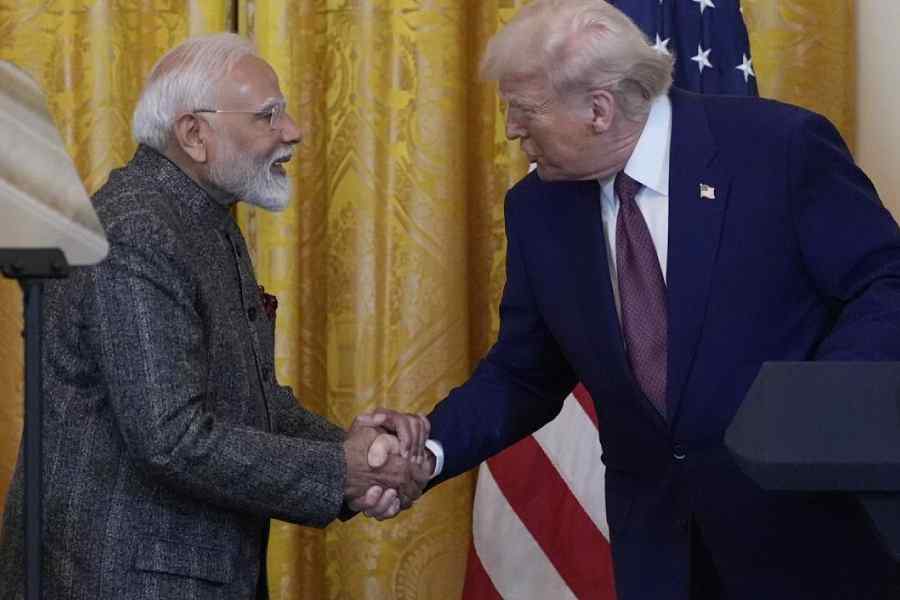Narendra Modi’s two-day visit to the United States of America offered him an early chance to influence the approach of President Donald Trump towards India in his second term. Yet, for all the tall talk of strong ties and strategic convergence between the two nations, what emerged from Mr Modi’s meeting with Mr Trump was the portrait of an India on the defensive, trying to somehow mitigate the damage to the country from the American leader’s slash-and-burn policies. Missing was the confident swagger with which Mr Modi typically approaches overseas visits, including to the US, as the leader of the world’s largest democracy. This shift was also reflected in Mr Modi’s public comments and the takeaways from the visit. Even by the cringeworthy standards of flattery that Indian politics is accustomed to, Mr Modi’s engagement with Mr Trump carried a tinge of desperation. The prime minister praised Mr Trump’s ‘Make America Great Again’ slogan, described his own vision for India as effectively translating to ‘Make India Great Again’, and then said that Mr Trump ought to hold the copyright for deal-making. Meanwhile, India appears poised to buy more American energy and F-35 fighter jets.
Yet, none of that shielded India from Mr Trump’s declaration of reciprocal tariffs on all countries that levy duties and taxes on American products. As Mr Trump has frequently complained, India does charge among the highest tariffs in the world, about 17% on average, about five times the average that the US imposes. The US is India’s largest export destination. If it starts imposing significantly higher tariffs on Indian pharmaceuticals or information technology products, that would serve as a major blow to Indian exports. Meanwhile, the pressure to buy US oil and gas — likely at a higher cost because of the longer transportation required — will undercut India’s energy security hopes, forcing it to buy less of the cheaper crude from Russia it has relied on in recent years. Just as with energy, India’s defence purchase choices have historically been driven by a desire for advanced military platforms that meet its needs acquired at the best deals possible. Now, it appears they might be influenced by one man’s whims. India must avoid both the obsequious acceptance of Mr Trump’s demands and an openly confrontational approach that will yield little. Striking that balance will not be easy. But India must get it right.










